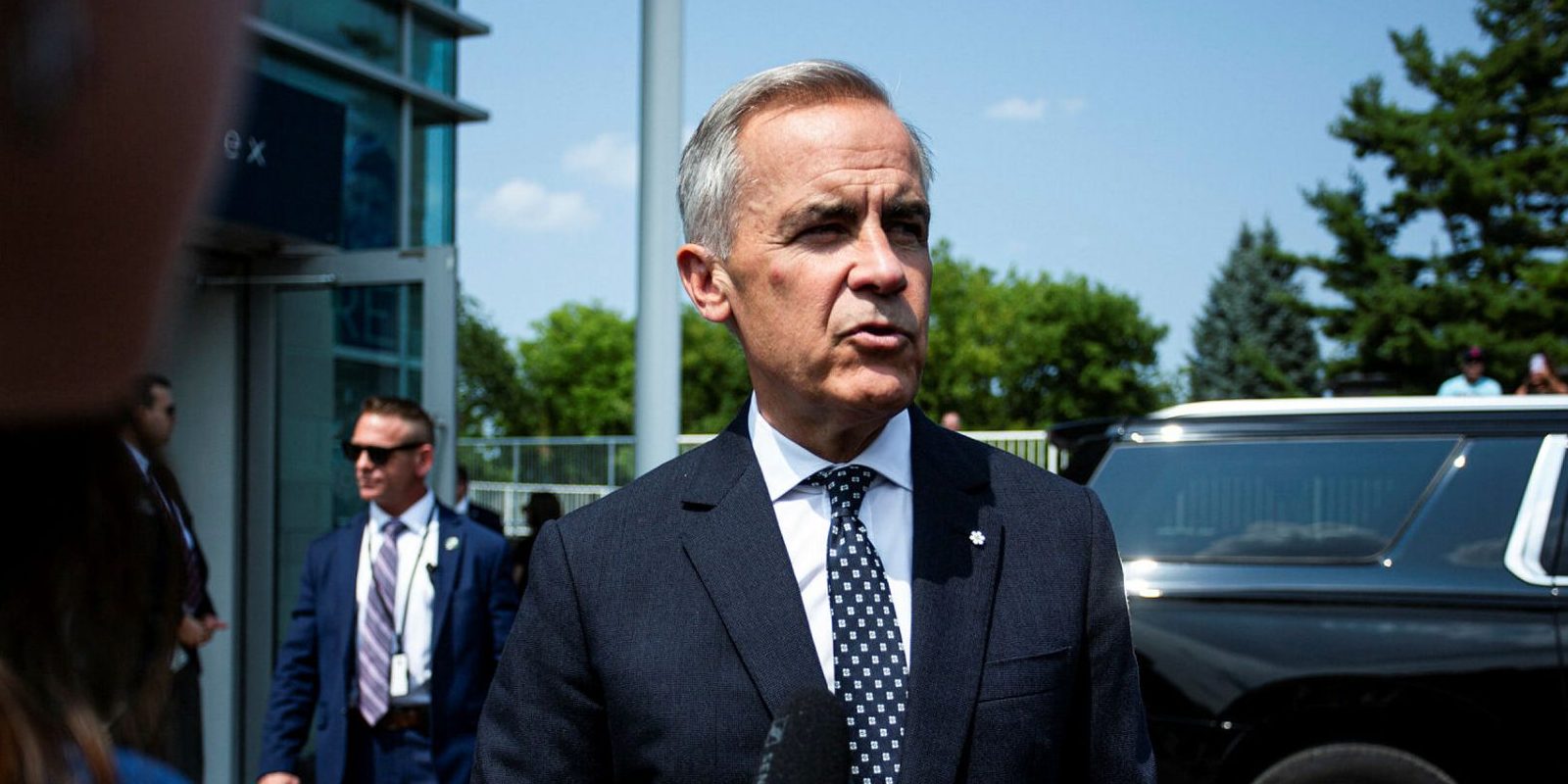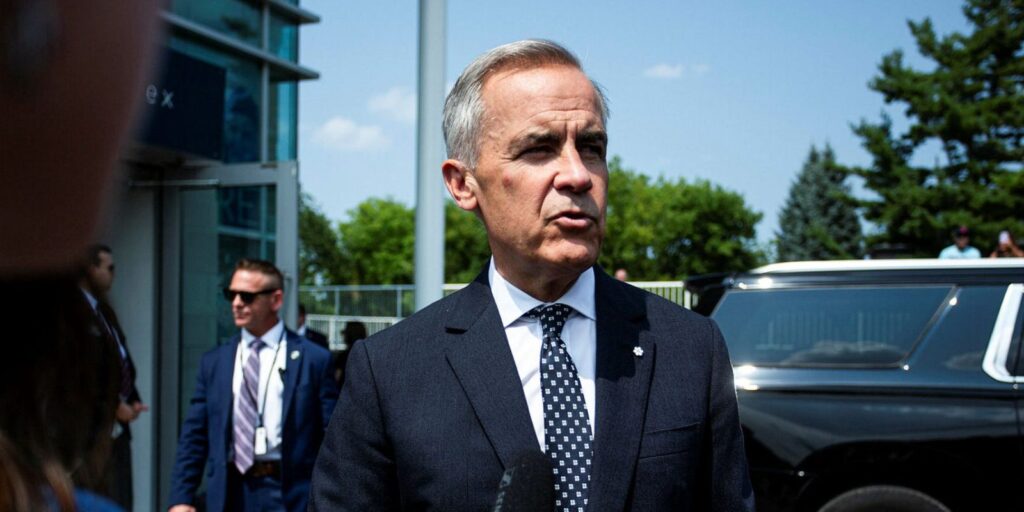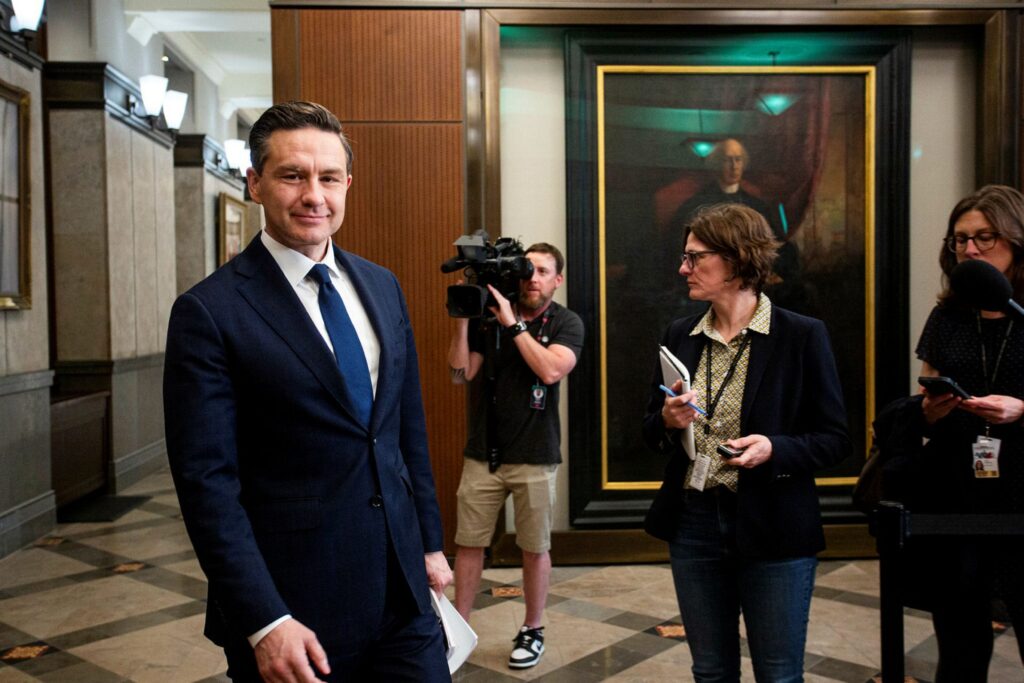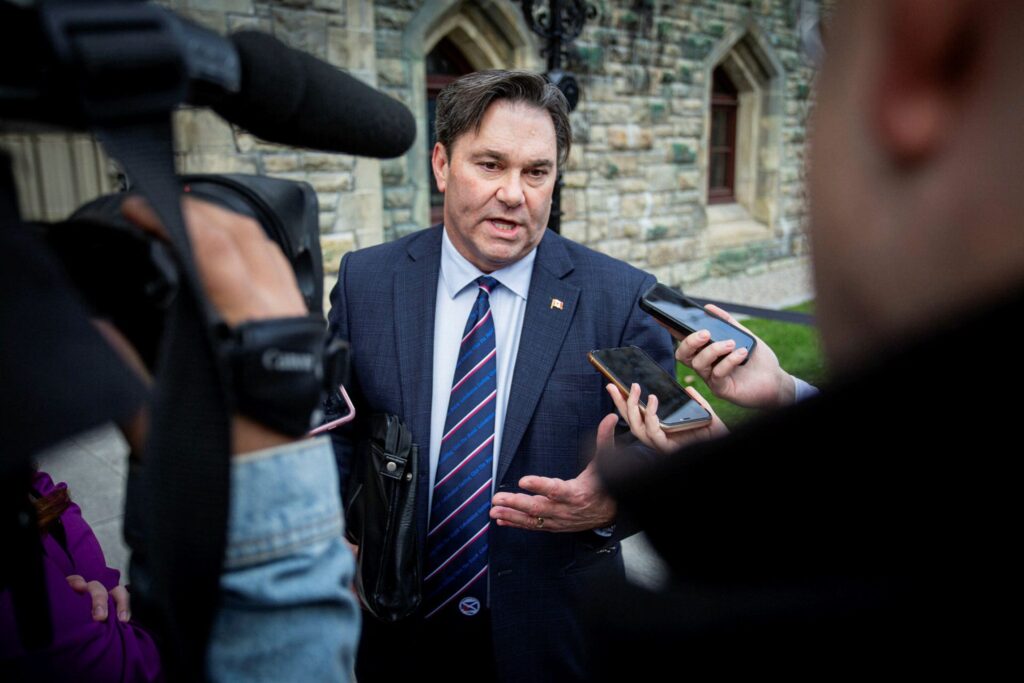How will the 45th Parliament work?

By Lori Turnbull, Senior Advisor
Published in the Hill Times on September 15, 2025
A functional relationship between the executive and legislative branches of government is crucial to the country’s future. To put it bluntly: we have no time for partisan games. We need the legislature to do its job of holding the government to account.

Prime Minister Mark Carney scrums with reporters as he leaves the Metis Major Projects Summit in Ottawa on Aug. 7, 2025. The Hill Times photograph by Andrew Meade
OTTAWA—The return of Parliament will be a test both for the Liberal minority government and for Parliament itself.
The Liberal minority government will have to figure out how to keep itself alive, but the government is not the only entity with something to prove. The last Parliament had become so toxic that it was barely workable. Its capacity to hold the government to account was undermined by partisan bickering and personal attacks.
The country is facing enormous challenges, including the trade war with the United States as well as the housing and affordability crises, and Prime Minister Mark Carney is proposing big changes to meet the moment. A functional relationship between the executive and legislative branches of government is crucial to the country’s future. To put it bluntly: we have no time for partisan games. We need the legislature to do its job of holding the government to account. Will this Parliament be more functional than the last one?

Conservative Party Leader Pierre Poilievre, pictured on the Hill on June 10, 2025. The Conservatives’ biggest problem is that the Liberals have stolen many planks of their election platform. The Hill Times photograph by Andrew Meade
A few months after the Liberals formed a minority government following the 2021 election, they entered into an agreement of confidence and supply with the New Democrats. This basically inoculated the Liberals from the threat of losing confidence as long as they kept their promises on some key NDP priorities. Though some policy goals were met, including the creation of the Canadian Dental Care Plan, the deal meant that the NDP abdicated its role as an opposition party and started acting more like an extension of the government. If they had offered support on an ad hoc basis instead, extracting demands from the government in exchange for NDP support on each vote, the result might have been better policy and greater accountability and transparency.
The Conservatives were on their way to what everybody thought was an assured victory in the next election, and so they were laser-focused on keeping Justin Trudeau’s popularity low. But, frankly, given the solidarity between the Liberals and the NDP, there was little the Conservatives could do to threaten the government’s security, or make meaningful changes to legislation via the parliamentary committee process.
Carney has been clear that there will be no confidence-and-supply agreement either with the New Democrats or anyone else. In theory, this could make the government more vulnerable to a loss of confidence, but, in reality, no one wants an election any time soon so the players will have to find a way to make things work.
The New Democrats lost party status in the last election, which means they no longer have the right to sit on House committees or have their leader ask questions during Question Period. In other words, their ability to hold the government to account has been largely gutted. They still have the power of the vote, of course, and the government might find that it is difficult to get the NDP’s support on key measures like the austere budget that is anticipated for the fall. To avoid defeating the government, we might see the NDP sit out votes on matters that they can’t support.

Interim NDP leader Don Davies, pictured on the Hill. To avoid defeating the government, we might see the NDP sit out votes on matters that they can’t support, writes Lori Turnbull. The Hill Times photograph by Andrew Meade
The Conservatives’ biggest problem is that the Liberals have stolen many planks of their election platform. They want to be the ones to build pipelines, introduce bail reform, and cut the public service. Given this symmetry between themselves and the Carney government, the Conservatives have a strategic choice to make about how they show up upon the return of the House of Commons: do they use their strength in committee constructively to move amendments to legislation and then vote with the government to share the credit? Or do they try to distance themselves from the government by attacking the prime minister’s competence and integrity? The likelihood is that they will pursue both strategies simultaneously while hoping that Carney’s political capital drains in the absence of a deal with U.S. President Donald Trump.
No matter what happens, Canadians need and deserve a functional Parliament that holds the government to account and scrutinizes its decisions. Politicians will always be motivated by scoring wins at the expense of their opponents. It’s in their blood. But, given the stakes, we need them also to take seriously their role as public officials acting on Canadians’ behalf.